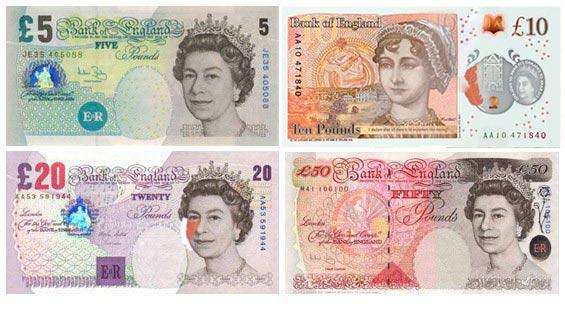Website designed with the B12 website builder. Create your own website today.
Start for free
The Pound Sterling (GBP): An Overview
The Pound Sterling, with a history dating back to 886 AD, holds the distinction of being the world's oldest currency and serves as the official currency of the United Kingdom. It ranks as the fourth most actively traded currency in the foreign exchange (FX) market, accounting for approximately 12% of global FX transactions, with a daily average turnover of $630 billion, based on 2022 figures. Key trading pairs include GBP/USD, commonly referred to as "Cable," representing 11% of FX volume, GBP/JPY, known as the "Dragon" among traders (3%), and EUR/GBP (2%). The Bank of England (BoE) is the issuing authority for the Pound Sterling.
The Influence of Bank of England Decisions on the Pound Sterling
Monetary policy, as determined by the Bank of England, exerts the most significant influence on the valuation of the Pound Sterling. The BoE's monetary policy decisions are primarily guided by its mandate to maintain "price stability," targeting a consistent inflation rate of approximately 2%. Adjusting interest rates serves as the primary instrument for achieving this objective. To curb excessive inflation, the BoE typically raises interest rates, thereby increasing the cost of credit for individuals and businesses. This action generally supports the GBP, as elevated interest rates enhance the attractiveness of the UK as an investment destination for global capital. Conversely, when inflation falls below the target level, signaling potential economic slowdown, the BoE may consider reducing interest rates to lower borrowing costs, encouraging businesses to increase investment in growth-oriented projects.
The Impact of Economic Data on the Pound's Value
Economic data releases provide insights into the overall health of the UK economy and can significantly impact the Pound Sterling's value. Key indicators, such as GDP, Manufacturing and Services PMIs, and employment figures, can all influence the trajectory of the GBP. A robust economy generally bolsters the Pound Sterling. This is attributable to increased foreign investment inflows and the potential for the BoE to implement interest rate hikes, which directly strengthen the GBP. Conversely, weaker economic data releases tend to exert downward pressure on the Pound Sterling.
The Trade Balance and its Influence on the Pound
The Trade Balance represents another crucial data release impacting the Pound Sterling. This indicator reflects the difference between a country's earnings from exports and its expenditures on imports over a specified period. A nation with strong demand for its exports will likely see its currency appreciate, driven by the increased demand from foreign buyers seeking to acquire those goods. Consequently, a positive net Trade Balance typically strengthens a currency, while a negative balance exerts downward pressure.